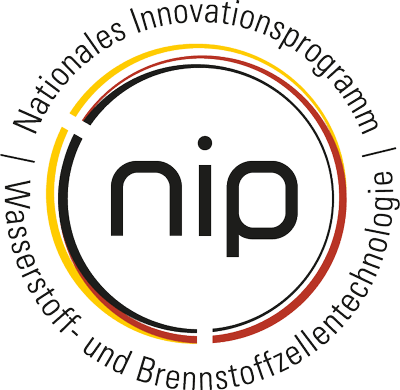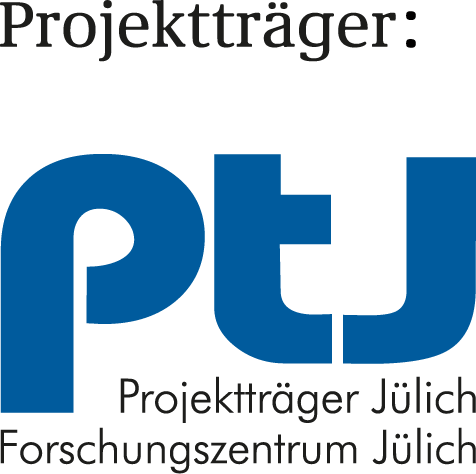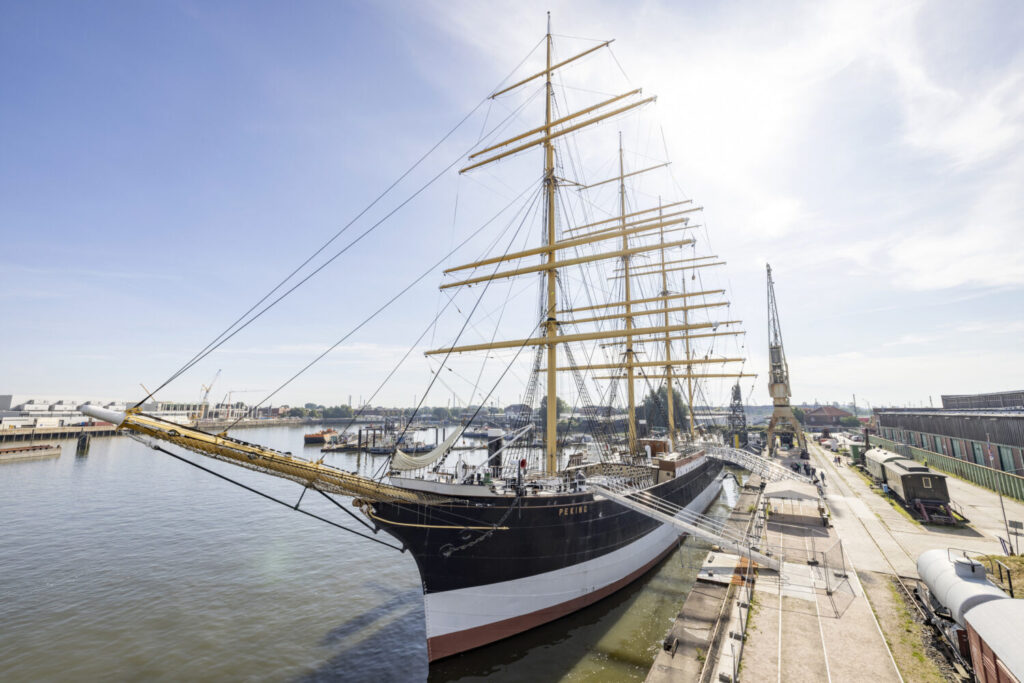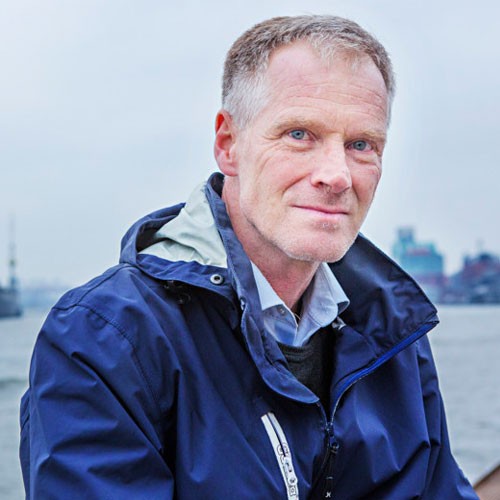Technological challenges are being solved to develop a climate-friendly and economical cargo sailing concept… Cargo ships with wind propulsion systems cross the oceans almost silently and emission-free…
This is the vision we are pursuing in the „RASANT“ project!
Hybrid Sail Cargo Ships – we develope ship concepts of the future!
Project

Wind as the main propulsion of cargo ships! What was already common practice 100 years ago can be an essential part of the decarbonisation of maritime shipping.
As part of the project, the four project partners are developing a ship concept that meets the modern market requirements of climate-neutral cargo shipping, primarily using the power of the free medium of wind. An automated, powerful wind-based main propulsion system is supplemented by an auxiliary propulsion system based on renewable, hydrogen-based fuels. The share of the wind-based main propulsion will be maximised with ongoing technological development to enable the most cost-effective and self-sufficient ship operation possible.
In view of the Fuel EU Maritime Regulation, which will come into force on 1 January 2025, the cargo sailer could be an optimal answer to the mandatory decarbonisation of cargo shipping for suitable ship types and routes. The percentage reduction in greenhouse gases required by law could already be realised today through available sailing systems.
News
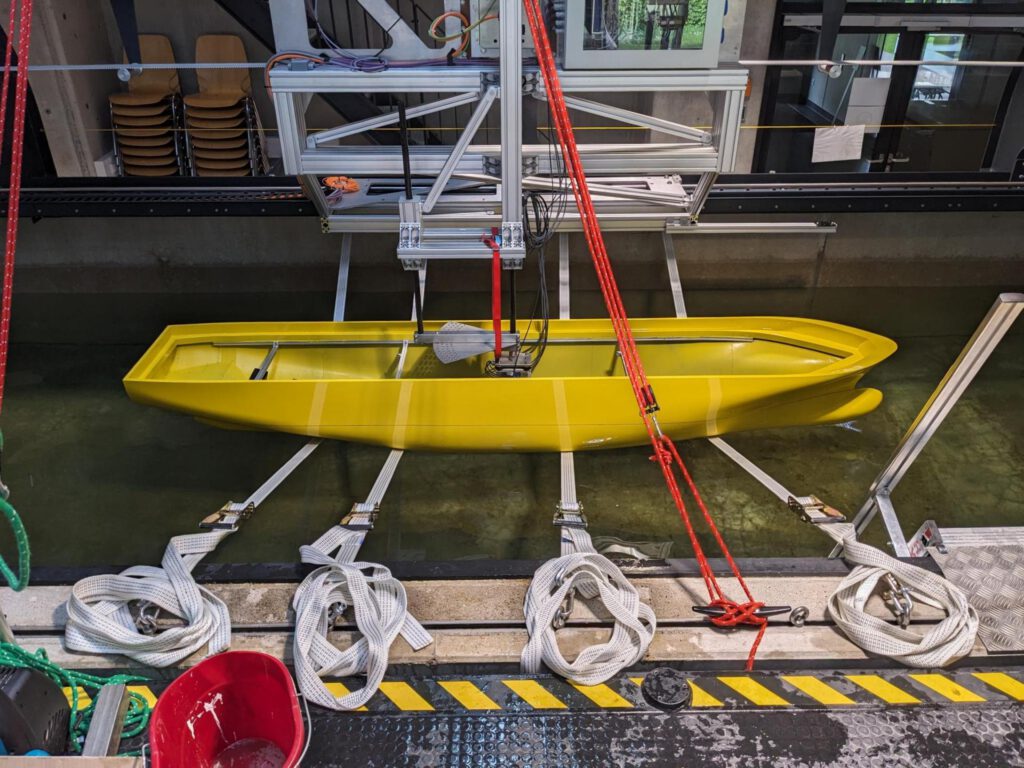
VIDEO FROM THE MARITIME TECHNOLOGY CENTRE AT UNIVERSITY OF APPLIED SCIENCES EMDEN/LEER
TOWING TANK TESTS FOR HULL OPTIMISATION

Open letter from the International Windship Association on the UN Climate Change Conference
TOP3 Actions to strengthen the wind fleet

Visit to the PEKING in the German Harbour Museum
Cargo ships of the future
Joint workshop of the RASANT project consortium at the Maritime Centre of Flensburg University of Applied Sciences
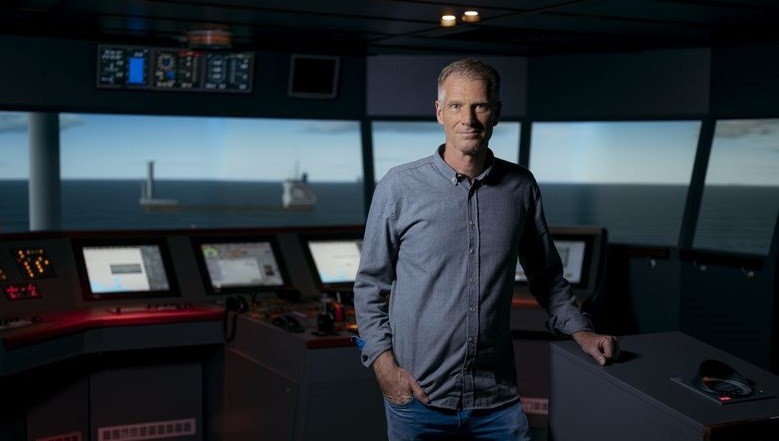
INTERVIEW WITH PROF. CAPTAIN MICHAEL VAHS
NO CLIMATE-NEUTRAL SHIPPING WITHOUT WIND
The type of ship and route have a decisive influence on the choice of sailing technology.

project start
WIND IN THE SAILS
Wind as the main propulsion system for cargo shipping – something that was common 100 years ago, before fossil fuels became the standard, could become relevant again in the future.
Goals
1
Marketable ship concept with upscaling potential
A new ship concept is to be developed and optimised in a feasibility study with a focus on design, transport performance, cost structure and operating conditions. Particular emphasis is placed on the marketability of the concept so that it can provide relevant support in the transformation to climate-neutral shipping through corresponding upscaling potentials.
2
Cost-efficient, self-sufficient ship operation by maximising the wind-powered main propulsion system
The attractive and innovative character of the project aims at the development of a new type of ship whose energy demand is covered by a share of free wind energy to be maximised. The automated, high-performance wind main propulsion system is supplemented by a climate-neutral auxiliary propulsion system based on renewable, hydrogen-based fuels. This makes it possible to operate the ship independently of the weather.
3
Networking for climate-neutral wind-based ship propulsion concepts
A network of companies and research institutions is to be established. This will cover the entire spectrum of competences and services for the development, construction and operation of innovative ship concepts with wind as the main source of propulsion. The aim is to create optimal development potential for the maritime industry as a basis for a strong market position in the future market of climate-neutral shipping.
Shipping of the future
„On the way to climate-neutral shipping, we support innovative technologies and concepts. As part of a technology-open approach, proven main sources of propulsion such as wind are also increasingly in the focus of shipping. By funding this study on an innovative cargo sailing vessel, we are laying the foundation for a completely new ship concept that intelligently combines the use of wind and e-fuels on board.“

Dr. Volker Wissing
Federal Minister for Digital Affairs and Transport
Partners

MARITIME COOPERATION NETWORK
The project is being carried out by a network of research institutions that can already build on broad experience in this research field (project consortium). In addition, there is very close cooperation with shipping companies, engineering offices, shipyards and suppliers (associated project partners) who are specialised in this field and want to help develop this new type of ship. This creates a network of research institutions and companies that can build and operate a cargo ship in the future. This network is open to other interested parties from the maritime industry.
Associated Partners
Partnermap
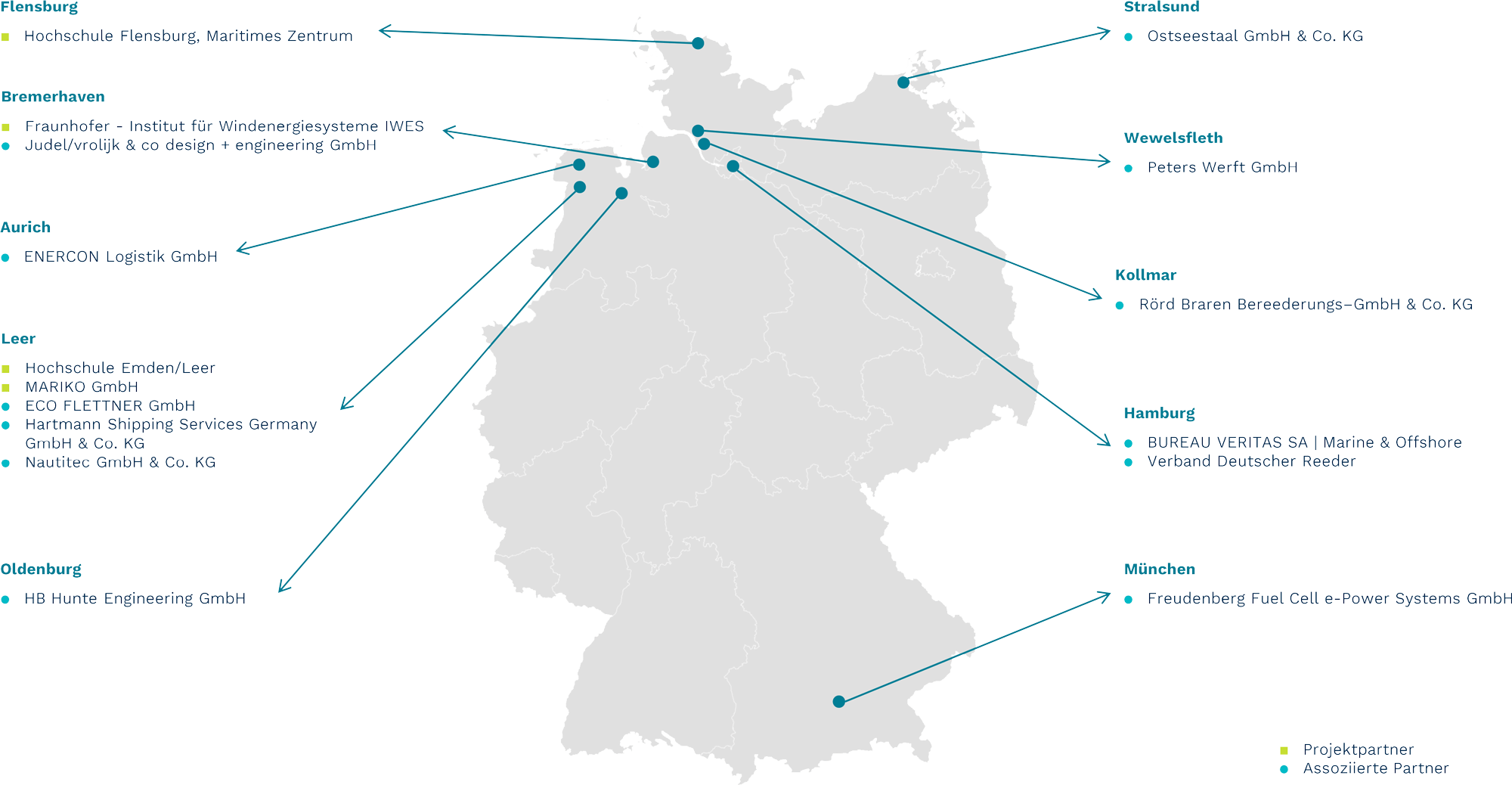

Funding
2.900.000
Budget
30
Months duration
The RASANT project is funded by the Federal Ministry of Digital Affairs and Transport within the framework of the National Hydrogen and Fuel Cell Technology Innovation Programme with a total of 2.9 million euros. The funding directive is coordinated by NOW GmbH and implemented by Project Management Jülich (PtJ).
